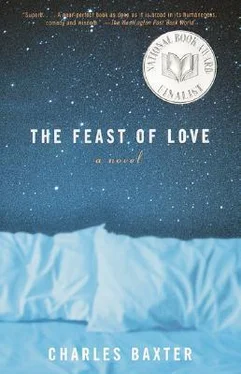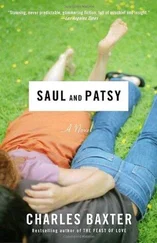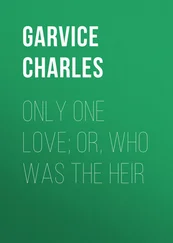So he was lying there, sky-gazing. Deep inside me was Oscar, big and hard as thunder, doing the reliable thrusts that keep life going, the meteors showering all around us. And I was working away on him, moving my premium American-girl hips up and down, and then I looked up at the stands, built solidly way in the distance and bolted into the concrete.
And that’s when I saw some guy sitting in the stands and looking down at us in the dark. It gave me a karma whiplash, and an idea.
SINCE YOU ASKED, I live next door to Bradley W. Smith. I see him walking his dog, also called Bradley. What is this, that a man should name his dog after himself? The man runs a local coffee franchise, a modest achievement, in all truth. Megalomania can strike anywhere, I suppose is the point.
After he lost his second wife to another man, I decided to explain to him about Kierkegaard.
AS A JEW, I am drawn in a suicidal manner toward the maddest of Christians. Kierkegaard, being one of the craziest and most lovable of the lot, and therefore, dialectically, possibly the most sane of them all, is of compelling interest to me. All my life, I have tracked his ghost doggedly through the snow. Lonely, eccentric, and crazed, the man Kierkegaard worried continuously about the mode in which one might think, or could think, about two unknowns: God and love. These were for the hapless Kierkegaard the most compelling topics. They bound him in tantalizing straps. Of the two vast subjects about which one can never be certain and should therefore perhaps keep silent, God and love, Kierkegaard, a bachelor, claimed especial expertise. Kierkegaard’s homage to both was multifarious verbiage. He wrote intricately beautiful seminonsense and thus became a hero of the intellectual type.
AS A MEMBER of the bourgeoisie, I live quietly in this midwestern city of ghosts and mutterers. Everywhere you go in this town you hear people muttering. Often this is brilliant muttering, tenurable muttering, but that is not my point. All these mini-vocalizations are the effect of the local university, the Amalgamated Education Corporation, as I call it, my employer. It is in the nature of universities to promote ideas that should not be put to use, whose glories must reside exclusively in the cranium. Therefore the muttering. There are exceptions, of course. The multimillionaire lawyers and doctors and engineers — how did they get into the university in the first place? — live here among us in their, to quote Cole Porter, stinking pink palazzos, and motor about in their lustrous sleek cars. The warped personalities, like myself, like my prey Kierkegaard, walk hunched over and unnoticed, or we wait at the bus stops, managing our intricate and tiny mental kingdoms as the rain falls on our unhatted heads. We wait for the millennium and for Elijah.
MY WIFE IS ESTHER, a tough bird, the love of my existence. She works as a biochemist for one of the local drug companies. It was Esther who years ago found out that the wonder medication Clodobrazole deformed babies in the womb, gave them unnatural shapes, took away toes and fingers and entire arms. If Esther’s mother hadn’t joined the Party as a young woman (and who else but the Reds was trying to desegregate the public beaches in those days? who else had a single social idea worth implementing?) and hadn’t put Esther in red diapers, and hadn’t signed Esther up for the Party as a child, she would have been proclaimed, my Esther, from the rooftops. But somehow, in the shower of publicity, some measuring worm looked up her background, and, though Esther as a youngster was blameless, and not a Leninist but a reader of Trotsky, that was that.
We live, in all truth, a tranquil domestic life. We have a year or two to go before retirement. Mondays, Wednesdays, and Fridays I cook dinner. My specialty is a beef burgundy, very tasty, you have to remember to cook it slowly, covered of course, in the liquids so that the meat and the onions and the potatoes become tender. Tuesday and Thursdays are the nights when Esther cooks. We read, we talk, we play canasta and Scrabble. We feed the two goldfish, Julius and Ethel. They must live.
As is proper, the children — all grown — have left home. We have three. The oldest, our beautiful daughter Sarah, is, like her mother, a biochemist. She is successful but, so far, unmarried. She would be a handful for any man. I mean this as praise and description. The middle one, Ephraim, is a mathematician and father to three wonderful little ones, our grandchildren. I have pictures here somewhere. Of the youngest, Aaron, who is crazy, I should not speak. And not because he blames me for the mess in his head. No: he deserves to be left alone with his commonplace lunacies — he calls them ideas — and given peace. He lives in Los Angeles.
AFTER KATHRYN, Bradley’s first wife — a woman I never met, I should add — left him, Bradley became the manager of a local coffee shop and bought the house next door to us. He became our neighbor. He moved into a haunted house, haunted not by ghosts but divorce. A divorce dybbuk scuttled around inside the woodwork. Young couples would purchase that property, they would take up occupancy, they would quarrel, the quarreling would escalate to shouting and table-pounding, they would anathematize each other, and, presto, they would move out, not together but separately. They would scatter. Then back the house would go onto the real estate market. Three couples we saw this happen to.
I should explain. At first sight, each time they arrived, they were fine, scrubbed American pragmatists you might see photographed in a glossy magazine. Blond, blue-eyed Rotarians, fresh owners of real estate, Hemingway readers, they would unload their cheerful sunny furniture from U-Haul vans. By the time they moved out, they would have acquired mottled gray skin and haggard Eastern European expressions. Even the children by that time would have the greenish appearance of owl-eyed Soviet refugees stumbling out of Aeroflot. These young families emerged from that house bent and broken, like vegetables left forgotten in the crisper.
So, when Bradley arrived, alone except for his dog, we thought: the curse is over. The dybbuk will have to locate itself elsewhere… This Bradley, an interesting man, invited Esther and me to dinner the second week he was installed in that house. A courageous gesture. He was not afraid of Jews. He served veal, which Esther will not eat. In the dining room, she picked at it delicately. She left small scraps of it distributed randomly around her plate. I said later: at least no ham, no pork, no shrimp mousse, no trayf. But Harry, she said, veal to me is like a frozen scream. I can’t eat it. So don’t eat it, I said. So I don’t, she said. So?
The man, Bradley, had a certain hangdog diffuseness characteristic of the recently divorced. But he was trying against certain odds to be cheerful. He asked me about my work, he asked Esther about her work, and he listened pleasantly while we did our best to explain. These topics do not provide good conversation. He listened, though. He had large watchful eyes. I was reminded of an extremely handsome toad, a toad with class and style and good tailoring. He seemed to be living far down inside himself, perhaps in a secret passageway connected to his heart. Biochemistry does not scintillate at the dinner table, however, nor do neo-Kantian aesthetics. Only when I mentioned Kierkegaard did Bradley perk up. From behind a locked bedroom door, his dog simultaneously barked. I assumed that the dog had caught sight of the dybbuk or was interested in Kierkegaard.
Prompted by his interest, I said that Kierkegaard, the Danish philosopher, had fallen in love with an attractive girl, Regine Olsen, and then he had concluded that they would be incompatible, that the love was mistaken, that he himself was complex and she was simple, and he contrived to break the engagement so as to give the appearance that it was the young lady’s fault, not his.
Читать дальше
Конец ознакомительного отрывка
Купить книгу












